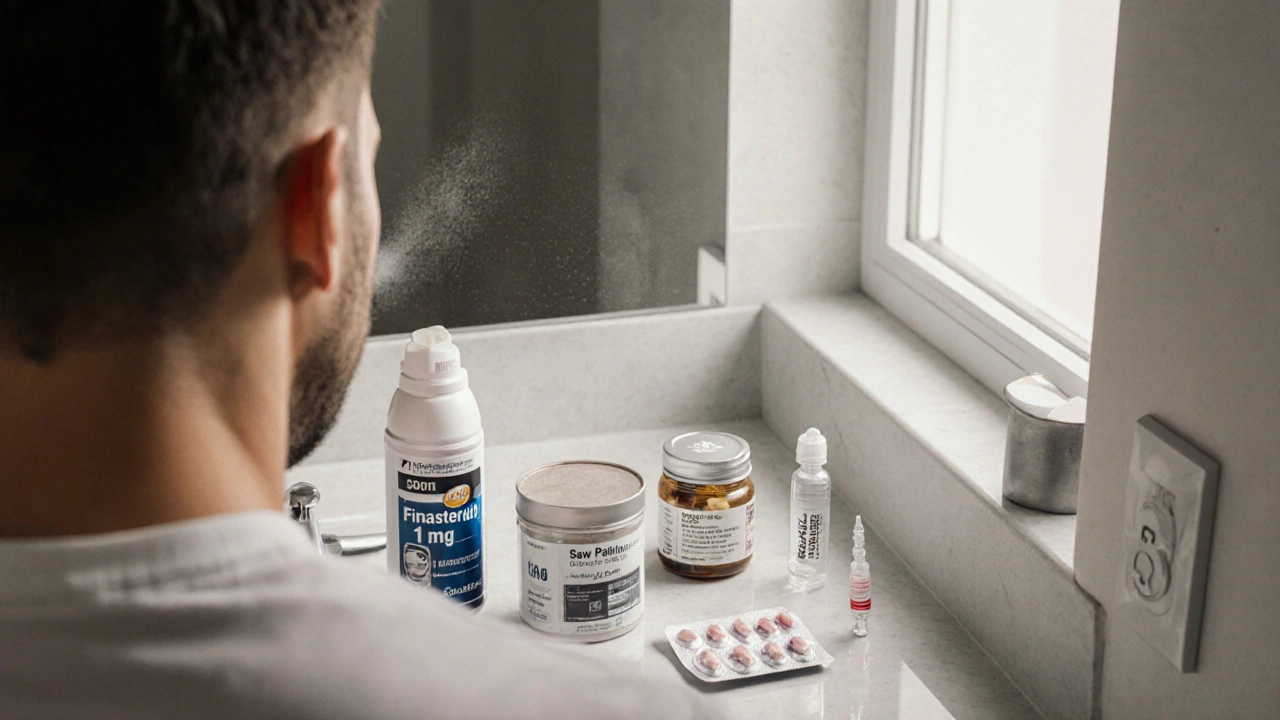Hair Loss Alternatives – Your Complete Guide
When you search for Hair Loss Alternatives, any method that aims to slow, stop, or reverse hair thinning without relying solely on prescription pills. Also known as hair thinning solutions, it covers a mix of topical agents, nutritional boosts, and low‑level light devices. Understanding these options starts with knowing why hair falls out in the first place.
Key players that shape the landscape
One of the most talked‑about alternatives is Minoxidil, a topical liquid that widens blood vessels and prolongs the growth phase of hair follicles. It’s often the first line of defense for both men and women because it’s easy to apply and doesn’t require a prescription. Another cornerstone is Finasteride, an oral tablet that blocks the conversion of testosterone to dihydrotestosterone (DHT), the hormone most linked to androgenic alopecia. While finasteride is a prescription drug, many consider it an “alternative” to more invasive procedures like hair transplants.
Beyond drugs, nutritional supplements have earned a spot in the conversation. Ingredients such as biotin, zinc, and saw‑tooth oak extract claim to nurture the scalp from the inside out. Their role fits the semantic triple: Hair loss alternatives require adequate nutrition to support follicle health. Similarly, low‑level laser therapy (LLLT) devices create a mild photobiological stimulus that can boost cell metabolism – another triple: Laser therapy influences hair growth cycles, which in turn expands the range of hair loss alternatives.
Each of these options interacts with the underlying cause of hair loss, most commonly the hormone DHT. Knowing that DHT shrinks follicles helps you see why a DHT‑blocking pill, a scalp‑enhancing serum, or an anti‑inflammatory supplement might all appear in the same list. That connection forms the triple: DHT affects follicle size, and hair loss alternatives aim to counteract that effect.
Our collection below mirrors this variety. You'll find deep dives into drug comparisons like Arimidex versus other hormone therapies, practical guides on supplement choices such as selenium for thyroid health, and even lifestyle tips for conditions that indirectly influence hair, like chronic inflammation from hepatitis C. Together they give you a holistic picture of how different treatments intersect with hair health.
Ready to see which alternative fits your routine, budget, and safety preferences? Browse the articles below for clear comparisons, side‑effect profiles, and real‑world tips that can help you decide your next move toward healthier hair.

